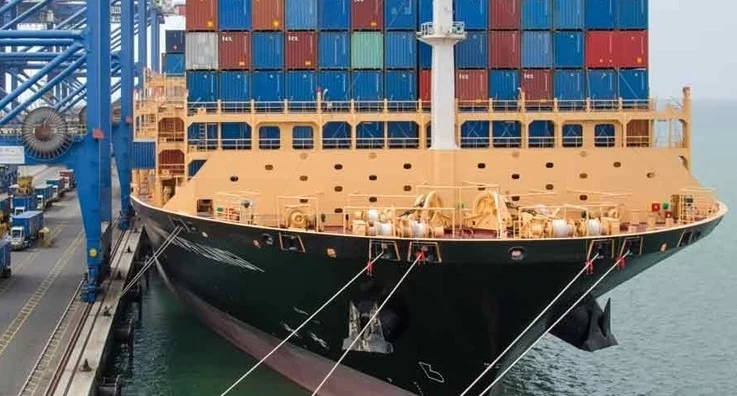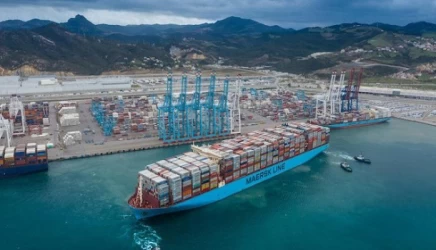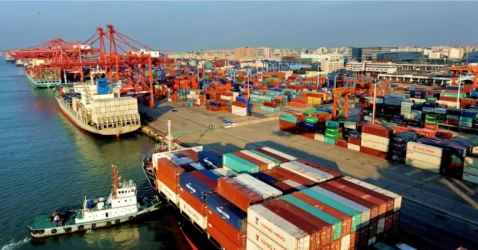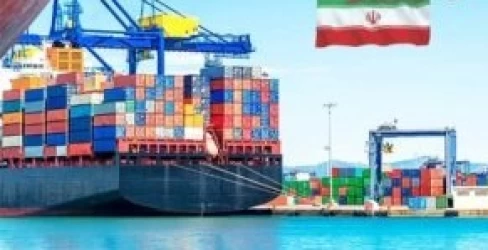Sea freight in the port of Djibouti
The Port of Djibouti, located at the crossroads of one of the world’s busiest shipping lanes, is a strategic maritime hub in the Horn of Africa. Situated at the southern entrance of the Red Sea, the port serves as a gateway to the Suez Canal, linking Europe, Asia, and Africa. Djibouti’s port has emerged as a key transit point for global trade and is crucial for the economies of East Africa, especially Ethiopia, which relies heavily on it for imports and exports. With its advanced infrastructure and strategic importance, the Port of Djibouti plays a significant role in regional and international maritime transport.
Historical Background of the Port of Djibouti
The history of the Port of Djibouti dates back to the late 19th century when it was established as a French colonial port to facilitate trade between Europe and East Africa. Its proximity to Ethiopia, a landlocked nation with significant trade needs, further enhanced its importance. In 1917, the construction of the Addis Ababa-Djibouti railway cemented the port’s role as Ethiopia's primary access point to the sea. Over the decades, the port has undergone multiple upgrades and expansions, transforming into one of Africa’s most modern and busiest ports.
Key Features of the Port of Djibouti
The Port of Djibouti is known for its advanced facilities and strategic location. Some of the key features that make this port vital for maritime transport include:
- Strategic Location: The port is located along the Bab-el-Mandeb Strait, one of the most important maritime chokepoints in the world. This strait connects the Red Sea with the Gulf of Aden, making Djibouti a crucial link between East and West for international shipping lines.
- Modern Infrastructure: Djibouti has made significant investments in its port infrastructure. The Doraleh Multipurpose Port, inaugurated in 2017, is one of the most advanced in the region. It is capable of handling various types of cargo, including containers, bulk cargo, and vehicles. The port’s advanced container terminals allow for efficient and quick handling of shipments, reducing delays and costs for shipping companies.
- Deep-Water Capacity: The port has deep-water berths, which allow it to accommodate the largest vessels in the world. This is a critical feature that enables Djibouti to serve as a transshipment hub for the region, receiving large vessels and transferring cargo to smaller ships for onward transport to other African ports.
- Free Trade Zone: Djibouti has established a free trade zone adjacent to the port, which helps attract international investment and boosts trade. The Djibouti International Free Trade Zone (DIFTZ) is the largest of its kind in Africa, offering businesses access to tax exemptions, streamlined customs procedures, and modern logistics facilities.
- Connectivity to Ethiopia: One of the port’s most significant advantages is its connectivity to Ethiopia. As a landlocked country, Ethiopia relies heavily on Djibouti for over 90% of its maritime trade. The railway connecting Addis Ababa to Djibouti ensures smooth transportation of goods between the two countries, making Djibouti indispensable to Ethiopia’s economy.
Economic Importance of the Port of Djibouti
The Port of Djibouti is a vital component of both Djibouti’s and Ethiopia’s economies. As Djibouti’s largest source of revenue, the port contributes significantly to the country’s GDP and provides thousands of jobs. The port is not only essential for maritime trade but also for the development of other sectors such as logistics, warehousing, and transportation.
For Ethiopia, which has no coastline, the Port of Djibouti is its primary maritime outlet. Ethiopia’s booming economy, with growing demands for imports of industrial goods, machinery, and consumer products, relies heavily on the efficient functioning of Djibouti’s port. The export of agricultural products, textiles, and coffee from Ethiopia also flows through Djibouti, making the port an essential lifeline for the country.
Moreover, Djibouti’s strategic location has attracted significant international interest, including military bases from several nations, such as the United States, China, and France, due to its proximity to key maritime routes. This strategic interest has led to further investments in the port's infrastructure and development.
Challenges Facing the Port of Djibouti
Despite its strategic advantages and modern infrastructure, the Port of Djibouti faces several challenges:
- Congestion: As a major regional hub, the port can experience congestion during peak periods, leading to delays in cargo handling. Managing the growing volume of trade and ensuring smooth operations remains a challenge.
- Geopolitical Instability: The Horn of Africa is a region marked by geopolitical instability, with conflicts and tensions in neighboring countries such as Somalia, Eritrea, and Yemen. While Djibouti itself remains relatively stable, the surrounding instability can affect maritime security and trade flows.
- Dependence on Ethiopia: While the Ethiopian market is a significant advantage for Djibouti, it also poses a risk. Djibouti’s economy is heavily reliant on Ethiopia, and any disruptions in Ethiopia’s political or economic stability could have a direct impact on Djibouti’s port operations.
- Environmental Concerns: The expansion of port infrastructure and the increase in shipping traffic have raised environmental concerns, particularly regarding the impact on the marine ecosystem and pollution from maritime activities.
Future Prospects
The future of the Port of Djibouti looks promising, with plans for further expansion and modernization. The ongoing development of new terminals and logistics facilities will enhance the port’s capacity to handle increased cargo volumes. The establishment of partnerships with international shipping lines and investors will continue to strengthen the port’s position as a key maritime hub in the region.
Additionally, Djibouti’s government is focusing on diversifying its economy by developing its logistics and transport sectors, reducing its dependence on Ethiopia, and enhancing its global trade connections. The completion of new infrastructure projects, such as the Djibouti International Free Trade Zone, will further boost the port’s attractiveness to international businesses.
Conclusion
The Port of Djibouti stands as one of Africa’s most strategically located and economically important maritime hubs. With its modern infrastructure, deep-water capacity, and pivotal location along major global shipping routes, it plays a critical role in the trade and economic development of the Horn of Africa. Despite facing challenges such as congestion, regional instability, and environmental concerns, Djibouti’s port is well-positioned for future growth, offering significant opportunities for regional trade and international investment.
If you have any specific questions or need further assistance, feel free to ask!











